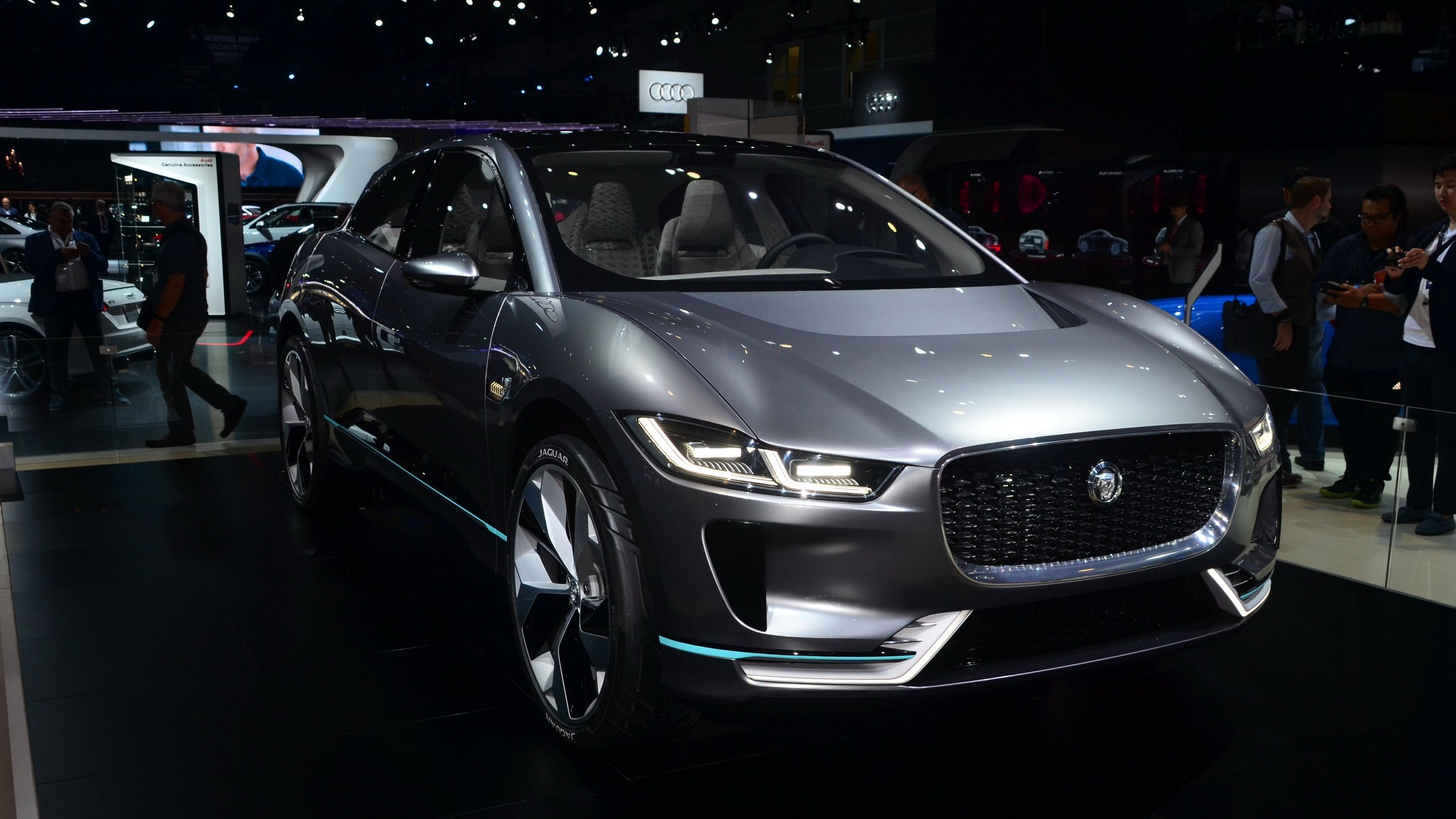Jaguar may be fully invested in the development of electric vehicles, but that doesn’t mean it’s embracing other low-emissions vehicles. Jaguar Land Rover technical director Wolfgang Ziebart made that point very clear at the Los Angeles Auto Show when he outright dismissed hydrogen-powered fuel cell vehicles. In his own words, Ziebart called FCVs “complete nonsense,” in large part because of their poor efficiency relative to battery electric vehicles.
At the heart of Ziebart’s disdain for FCVs is the well-to-wheel relationship from the energy source to the vehicle. According to Jaguar’s point man in the development of the I-Pace EV SUV, the whole process of producing hydrogen and them compressing and cooling them for use in a fuel cell vehicle is a lot less efficient compared to outrightly using electric energy. “You “You end up with a well to wheel efficiency of roughly 30 percent for hydrogen, as opposed to more or less well to wheel 70 percent efficiency for a battery electric vehicle,” Ziebart explained. “So the efficiency of putting the electric energy directly into a battery is about twice as high as the efficiency of producing and using hydrogen.”
To be fair, Ziebart did concede that there’s a place for hydrogen-powered vehicles if somebody finds a way to improve the whole process of improving the infrastructure for hydrogen production, including producing and distributing the energy without compromising its efficiency. Electric energy just makes more sense at this point, and for what it’s worth, Ziebart’s comments is all part of continued discussions among people within the industry of the short- and long-term benefits of fuel cell technology.
At the very least, Ziebart’s position on the issue is backed by a recent study by scientists at Stanford University and the Technical University of Munich that was published in the journal Energy. According to the study, battery electric vehicles offer a more affordable way to reduce carbon dioxide emissions than cars powered by hydrogen, citing lower costs and higher energy efficiency as the main reasons for the advantage.
Continue after the jump to read the full story.
The trickiness of fuel cell vehicles
Unlike the predominantly favorable stance towards battery electric vehicles, not a lot of automakers are on board fuel cell vehicles. There are those like Toyota, Honda, Hyundai, and Daimler who are regarded as the most bullish companies towards FCVs. But there are also those like Jaguar and Tesla who aren’t as sold on fuel cell vehicles, saying that the future is to go all electric.
There are definitely dissenting opinions about the feasibility and viability of using hydrogen – water, basically – as an alternative power source so to be fair about it, let’s run down the pros and cons of fuel cell vehicles. We’re only going to highlight the important ones so by no means should you consider this as the be-all and end-all of both side’s arguments.
The most prevalent debate about fuel cell vehicles is whether they are in fact zero emissions. FCVs emit water vapor, which is harmless compared to greenhouse gases. The issue here is that technically, not all fuel cell vehicles run purely on hydrogen. In California, for instance, FCVs are required to use only 33 percent of renewably sourced gaseous hydrogen with natural gas accounting for the rest. Plug-in America Chief Science Officer Tom Saxton also says this, as per Hybrid Cars: “You can convert natural gas to hydrogen, but that has the same carbon footprint as burning the natural gas. Don’t let anyone tell you otherwise. Natural gas is CH4; the carbon has to go somewhere.”
This isn’t to say that hydrogen is not as “clean” as some make it out to be because that’s not true either. The key here is to be able to develop renewable hydrogen, something the Swiss Federal Laboratories for Materials Science and Technology alluded to in its own study. According to the study, renewable hydrogen is the key to unlocking fuel cell vehicles because that’s the only way that fuel cells for cars will become “ecologically sound.”
The good news is that there are researches already underway, including one from the National Renewable Energy Lab in Colorado, to learn more about how to develop renewable hydrogen. The bad news is that these researches are still evolving in their own right.
So yes, JLR technical director Wolfgang Ziebart isn’t wrong with his opinion on the matter, even though he was a little harsh with his words. There’s a future for fuel cell vehicles in the industry, but like everything else, that picture is still being developed as we speak.
Who knows, if there ends up being a better and far more efficient hydrogen infrastructure down the road, Ziebart might walk back on his words. But for now, it's hard to argue against his stance when you take into account what the industry knows now about the technology, and what it still has to learn about it.

